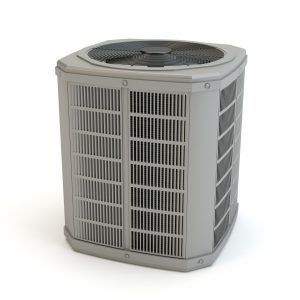Ah, the sweet relief of a cool blast of air on a hot summer day. But wait, instead of refreshing crispness, your air conditioner hits you with a wave of… musty odor? Not exactly what you had in mind. This unpleasant smell could be a sign of mold growth lurking within your AC unit, and it’s definitely not something to ignore. You might need air conditioning repair in Monclova, OH.
Understanding Mold and Your Air Conditioner
Mold thrives in damp environments, and your air conditioner, by its very nature, deals with a lot of humidity. As warm air is drawn into the unit, it cools down, causing condensation to form on the evaporator coil. This is perfectly normal. However, if this moisture isn’t properly drained away, it can create a breeding ground for mold spores that might be present in the air.
Mold growth inside your AC unit is problematic for several reasons:
- Health Concerns: Mold spores can irritate the respiratory system, especially for those with allergies or asthma. Symptoms like coughing, sneezing, and trouble breathing can worsen in such cases.
- Reduced Efficiency: A mold-infested AC unit has to work harder to circulate air, leading to increased energy consumption and higher utility bills.
- Unpleasant Odors: The musty smell is a telltale sign of mold, and it can permeate your entire home, making it unpleasant to breathe in.
Causes of Excess Humidity in Your AC Unit
Now that we’ve established the connection between mold and excessive moisture, let’s explore some reasons why your AC unit might be dealing with more humidity than it can handle:
- Clogged Drain Line: The condensate drain line is responsible for removing the collected moisture from the evaporator coil. If this line gets clogged with debris like dirt, algae, or mold itself, the water backs up, creating a perfect environment for mold to flourish.
- Dirty Air Filter: A clogged air filter restricts airflow, making the evaporator coil colder than usual. This can lead to excessive condensation on the coil, exceeding the unit’s capacity to remove moisture effectively.
- Low Refrigerant Levels: Refrigerant plays a crucial role in the cooling process. Low refrigerant levels can cause the evaporator coil to become too warm, reducing its ability to condense moisture properly.
- Improper Ductwork Installation: Leaky or poorly insulated ducts can allow warm, humid air from outside to infiltrate the system. This additional moisture load can overwhelm the AC unit’s dehumidification capabilities.
Combating Musty Smells and Mold Growth
If you suspect mold growth in your AC unit, here are some steps you can take:
- Turn Off the Unit: Shut down your AC system to prevent further circulation of mold spores.
- Change the Air Filter: Replace your air filter with a clean one to ensure proper airflow and prevent future coil icing.
- Consider Professional Cleaning or Repairs: Depending on the severity of the mold growth, professional cleaning of the evaporator coil and drain pan might be necessary. A qualified HVAC technician can assess the situation and recommend the best course of action.
Schedule an appointment with Your Comfort Specialists at AW Heating & Cooling!

